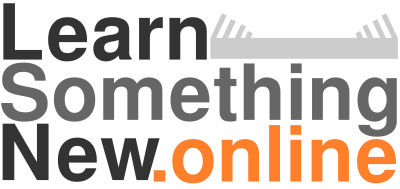The Art of Self-Education: Mastering New Skills on Your Own Terms
Self-education is an empowering process that invites you to take charge of your own learning.
With the vast amount of information available at your fingertips, you have the unique opportunity to learn new skills, expand your knowledge, and grow both personally and professionally on your own terms.
This journey is not just about acquiring information; it’s about developing the ability to teach yourself anything you desire to learn.

By becoming a self-learner, you embrace a mindset that values curiosity and adaptability, key traits in today’s ever-changing world.
Self-education isn’t confined to the walls of a classroom; it happens anywhere, anytime.
You build your own curriculum around your passions and objectives.
The techniques you employ, from selecting the right learning methods to creating an effective study routine, are tailored to fit your individual style.
Moreover, the advent of educational technologies and digital resources has made information more accessible, helping learners around the globe to achieve their goals.
Key Takeaways
- Embrace the mindset of a self-learner to navigate and adapt to the evolving landscape of information.
- Customize your self-education path by selecting suitable materials and practical applications relevant to your goals.
- Utilize digital resources and continually assess your progress to maintain the momentum of your learning journey.
Embracing the Journey of Learning

In self-education, acknowledging the process as a journey is vital.
You’ll discover the importance of cultivating a persistent curiosity, setting precise learning goals, and handling the inevitable frustrations that come with new challenges.
Cultivating Curiosity and Motivation
Your journey begins with curiosity, the root of all learning.
Stimulate your curiosity by asking questions and exploring topics that genuinely interest you. To maintain motivation:
- Reflect on what fascinates you and sparks your desire to learn.
- Engage with communities or forums focused on your interests.
- Be open to new ideas and perspectives that may expand your understanding.
Achieving discipline is about routine and consistency.
Create a habit of learning by:
- Allocating specific times for study each day.
- Using reminders or apps to keep your commitment strong.
Setting Learning Goals and Deadlines
Clear learning goals provide a roadmap to success.
Tailor these goals to build confidence and keep the journey comfortable. Here’s how:
- Define what you want to learn.
- Break it into manageable parts.
- Establish realistic deadlines for each part.
Practice is the bedrock of mastery.
Ensure your goals involve active application, not just passive consumption of information. Regular deadlines propel you forward and cultivate a sense of urgency.
Overcoming Challenges and Frustrations
Encountering obstacles is a natural part of self-education. To handle frustration:
- Acknowledge it as a sign of growth rather than failure.
- Step back and take a break if necessary to regain a fresh perspective.
Building resilience involves:
- Embracing mistakes as learning opportunities.
- Seeking solutions actively instead of dwelling on problems.
Stay committed throughout the ups and downs, knowing that each challenge surmounted brings you closer to your educational goals.
Strategies for Effective Self-Education

In the journey of self-education, the right strategies can streamline your learning process and enhance comprehension and retention.
Adopting methods to find credible resources, fostering critical thinking, and applying practical techniques will reinforce your learning habits.
Finding Reliable Information and Resources
To teach yourself anything, your first step is to gather reliable information and resources.
Start with a clear learning objective and then utilize the following methods to find quality content:
- Create a research plan that includes a list of topics you need to cover.
- Search for information using reputable websites, online libraries, and academic journals. Check the author’s credentials and publication dates to ensure the information is current and credible.
- Reach out to experts for recommended resources and possible mentorship.
- Join online forums and communities related to your field of study to exchange information with peers.
Remember to organize the resources you find for easy access and future reference.
The Role of Critical Thinking and Questions
Critical thinking is vital in self-education. It involves not simply accepting information at face value but analyzing and questioning it thoroughly.
- Always ask questions like “Why?”, “How does this work?”, and “What are the implications?”
- When you encounter new information, consider its source, context, and purpose.
- Engage in a feedback loop where you reflect on what you’ve learned, ask new questions, and seek out further information to answer them.
By questioning and validating what you learn, you solidify your understanding and become a more independent learner.
Applying the Feynman Technique
The Feynman Technique is a powerful learning method that can help you understand and remember concepts by explaining them in simple terms.
- Choose a concept you want to learn about and study it thoroughly.
- Pretend to teach it to someone else, such as a peer or even an imaginary audience, using simple and clear language.
- Identify gaps in your explanation; go back to your resources to understand those points better.
- Simplify and use analogies to elucidate complex ideas, creating a stronger comprehension.
Effectively, using the Feynman Technique transforms study sessions into active learning experiences, reinforcing your grasp on the subject matter through incremental teaching and learning cycles.
Choosing Your Learning Methods

Selecting effective learning methods is crucial to self-education.
It’s about finding the right tools and understanding how you learn best, then combining knowledge acquisition with hands-on application.
Self-Directed Learning Tools and Platforms
Finding the right tools can streamline your self-educational journey.
Online platforms such as Udemy, Skillshare, and Khan Academy offer a diverse range of courses.
These platforms allow you to learn at your own pace using your computer or mobile device.
- Udemy: Offers over 100,000 courses in various categories and skills.
- Skillshare: Focuses on creative skills and projects, good for hands-on learners.
- Khan Academy: Free educational platform, well-suited for academic learning in subjects like math and science.
These tools often come with additional resources like forums, PDFs, and interactive content to reinforce learning.
The Impact of Learning Styles
Your learning style—be it visual, auditory, or kinesthetic—affects how you absorb information. Tailor your method to fit your style:
- Visual: Emphasize content with diagrams, charts, and videos.
- Auditory: Seek out lectures and discussions that you can listen to.
- Kinesthetic: Focus on interactive, touch-based methods like building, creating, or the “sandbox method” of experimenting in a controlled environment.
Blending Theory with Practice
To solidify new knowledge, it’s essential to engage in deliberate practice. This means setting specific goals and receiving feedback. Here’s how to blend theory with practice effectively:
- Learn: Engage with theory through studying and online courses.
- Practice: Apply what you’ve learned in practical, real-world situations.
- Reflect: Assess what worked and what didn’t for continuous improvement.
Building Your Knowledge Base

To become a self-educator, you start at the foundation: increasing your knowledge. This process empowers you to progress from a novice in any subject to an expert through dedicated study and practice.
From Novice to Expert
Starting as a novice, you lack experience. But don’t let that intimidate you.
History has shown that with passion and determination, individuals like Leonardo da Vinci and Benjamin Franklin advanced their expertise without formal education. Your journey will include:
- Identifying basic concepts and terms of the subject.
- Understanding the historical context and evolution of the field.
- Practicing core skills regularly to build competence.
Developing a Subject Mastery Framework
Your framework for developing subject mastery should be systematic.
Initially, define your goals and the skills you need.
Afterwards, design a personalized curriculum that includes:
- Independent study: Use books, online courses, and other resources.
- Skill application: Engage in projects that allow you to put theory into practice.
- Feedback loops: Seek mentoring or peer reviews to assess your understanding.
Remember, Charles Darwin’s contributions to science came significantly from his independent studies and observations.
The Importance of Continuous Education
In a rapidly evolving world, continuous education ensures that your knowledge remains current and relevant. As a lifelong learner:
- Embrace new trends and technologies.
- Engage with communities and networks of other autodidacts.
- Periodically review and update your skills set.
Continuous learning garners respect similar to those with formal higher education qualifications. It is the hallmark of a true expert.
Exploring Learning Environments

Creating an effective learning environment is crucial for self-education.
You not only need a space that supports concentration and productivity, but also a community that fosters growth and collaboration.
Home Study Setups and Environment
Your home learning space should be a haven that minimizes distractions and maximizes your learning potential. Here’s how you can set it up:
Choose Your Space Wisely: Select a quiet corner of your home away from high-traffic areas. Ensure it has good lighting and ventilation.
Organize Your Tools: Keep your study materials easily accessible. Use bookshelves, desk organizers, or digital tools to keep everything in order.
Comfort is Key: Invest in comfortable seating and a desk at the right height to help maintain good posture during long study sessions.
Personalize Your Space: Adding a few personal touches like plants or artwork can make the space inviting and stimulate learning.
Joining Communities and Study Groups
Connecting with others can provide motivation and deeper insight into what you’re learning.
Online Communities: Look for forums or social media groups related to your subject. You can find these through a simple web search or on platforms like Reddit and LinkedIn.
Platform Type of Community Recommended for Reddit Subreddits on specific topics Broad Discussions LinkedIn Professional groups Career-focused Learning Facebook Closed or open groups Local and Global Networking Local Study Groups: Check community centers, libraries, or notice boards for any groups meeting nearby.
Consistency Beats Size: A small but consistent study group often provides more value than a large, erratic one. Look for or establish a group that meets regularly.
Practical Applications of Self-Education

Self-education empowers you to acquire new skills and knowledge in various domains, from launching a start-up to enhancing your artistic flair or tech proficiency. It revolves around structured learning, active practice, and applying knowledge to real-world projects.
Venturing into Business and Entrepreneurship
When you teach yourself about business, you’re equipping yourself with the foundation to launch and manage your own projects or start-up. Learn by:
- Reading business books and case studies.
- Following online courses and webinars by seasoned entrepreneurs.
- Actively participating in business forums and networking events.
- Starting a small-scale project to apply theoretical knowledge.
Practice is crucial; initiate mini-projects to understand the nuances of running a business, such as creating budgets, marketing plans, and analyzing customer feedback.
Mastering Creative and Technical Skills
Dive into creative skills like graphic design by:
- Utilizing online tutorials and software to learn design principles.
- Practicing by creating mock branding for imaginary companies or passion projects.
For technical skills, such as programming:
- Start with free coding resources online to grasp the basics.
- Progress to building small programs or websites to cement your understanding.
Learning a new language enhances your communication skills, vital for both business and personal growth. Use:
- Language learning apps for daily practice.
- Language exchange meetups or online platforms to practice with native speakers.
Develop your culinary prowess by cooking new recipes; this boosts your ability to follow technical instructions and adapt to variations—a useful metaphor for troubleshooting in technology.
Assessing Progress and Maintaining Momentum

Tracking your progress is key to effective self-education. It can boost your morale and refine your learning strategy.
Reflecting on Achievements and Areas of Improvement
You’ve likely had many successes along your learning journey.
Take a moment to celebrate those achievements; they are a testament to your hard work.
Make a list or chart to visually represent what you’ve learned and how far you’ve come at your own pace.
It’s important to be honest with yourself about which areas might still need improvement. Ask yourself these questions:
- What goals have I accomplished?
- Which skills have I improved, and which need more attention?
Example:
| Achievements | Areas for Improvement |
|---|---|
| Completed an online course in graphic design | Master more complex graphic design software |
| Developed a consistent study routine | Enhance time management to reduce procrastination |
Creating a Personal Feedback System
Your growth depends on a solid feedback system that lets you monitor your learning and prompts continuous improvement.
This system should consist of regular reviews of your work and scheduling check-ins with yourself. Use the following strategies:
- Set specific review intervals (e.g., weekly, monthly).
- Note down insights and actions from each session.
Consider these actionable items:
- Review notes and reflect on complex topics again.
- Identify patterns in procrastination to avoid them.
- Adjust learning expectations to maintain a realistic and productive pace.
Educational Technologies and Digital Resources

In an age where information is plentiful, technology has revolutionized your access to knowledge. The following sections guide you in navigating the rich world of digital resources and educational technologies that enable self-paced, comprehensive learning.
Utilizing Online Courses and Materials
Your journey to self-education is greatly enhanced by the wealth of online courses available.
Platforms like Udemy and edX offer a diverse array of subjects ranging from programming to philosophy. Here’s how to make the most of them:
- Selection of Courses: Look for courses that match your learning objectives and have positive reviews.
- Structured Learning: Online courses provide a structured approach, often with milestones and assessments.
- Supplemental Materials: Many courses include additional resources like readings, quizzes, and forums.
To illustrate, consider the following example:
| Platform | Course Example | Subject Matter |
|---|---|---|
| Udemy | “Complete Python Bootcamp” | Programming |
| edX | “Introduction to Philosophy” | Humanities |
The Role of Open Educational Resources
Open Educational Resources (OER) such as Wikipedia and Google Scholar democratize information by providing free and open access to knowledge.
- Wikipedia: As a vast online encyclopedia, it’s a starting point for research on almost any topic. However, always cross-reference with other sources for accuracy.
- Google Scholar: A valuable tool for accessing academic papers, articles, theses, and abstracts.
OERs empower you to delve into subjects at no cost, expanding educational opportunities beyond traditional barriers. Remember, the credibility and quality of information can vary, so practice discernment when selecting resources.




